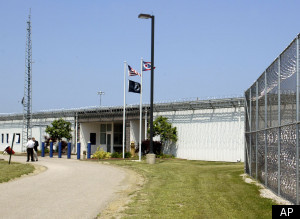 Monticello and Jefferson County, Florida, have become
dependent on a prison that opened in 1990.
Why?
According to
Rick Stone of WUSF 1 Feb 2012,
Monticello and Jefferson County, Florida, have become
dependent on a prison that opened in 1990.
Why?
According to
Rick Stone of WUSF 1 Feb 2012,
Late in the 80s, with crime rising and prisons filling up, Florida needed new prison sites but few counties wanted to be one. JeffersonThat’s not our situation. Crime is as low as it has been since the 1960s, prison populations have peaked, and we do have other sources of employment. Or are we really that desperate?County, just east of Tallahassee, was different. Then, as now, underpopulated and desperately poor, it saw an opportunity and it did something unusual.
because of the state’s declining inmate population. “We welcomed them with open arms,” said Kirk Reams, Jefferson County’s court clerk and chief financial officer.
Jefferson County thinks it has lucked out again, but only at the expense of Florida taxpayers, and against the prison population trend.
John Kennedy wrote for the Palm Beach Post 8 February 2012, Condemned Florida prison gets second chance at life in House, Continue reading
















